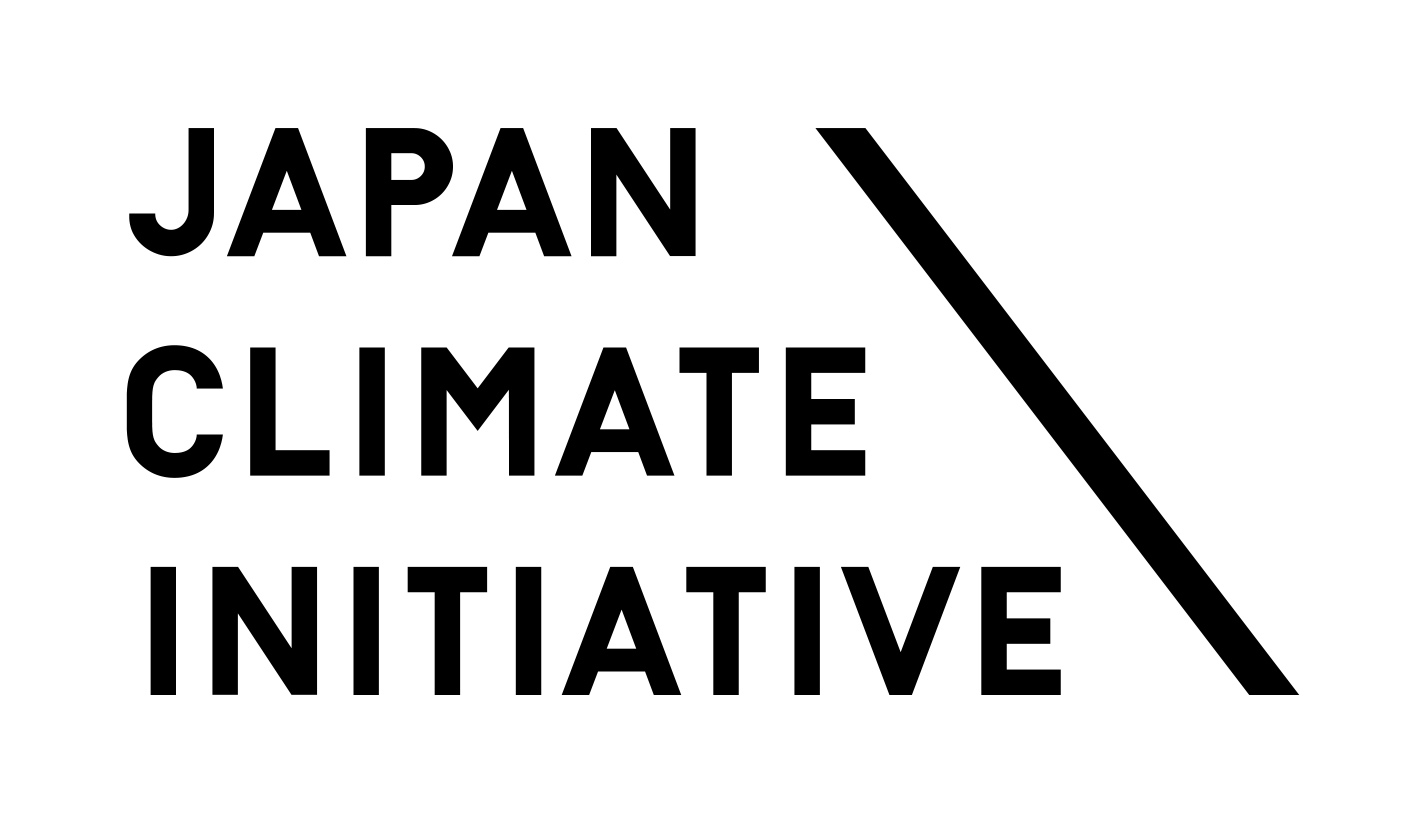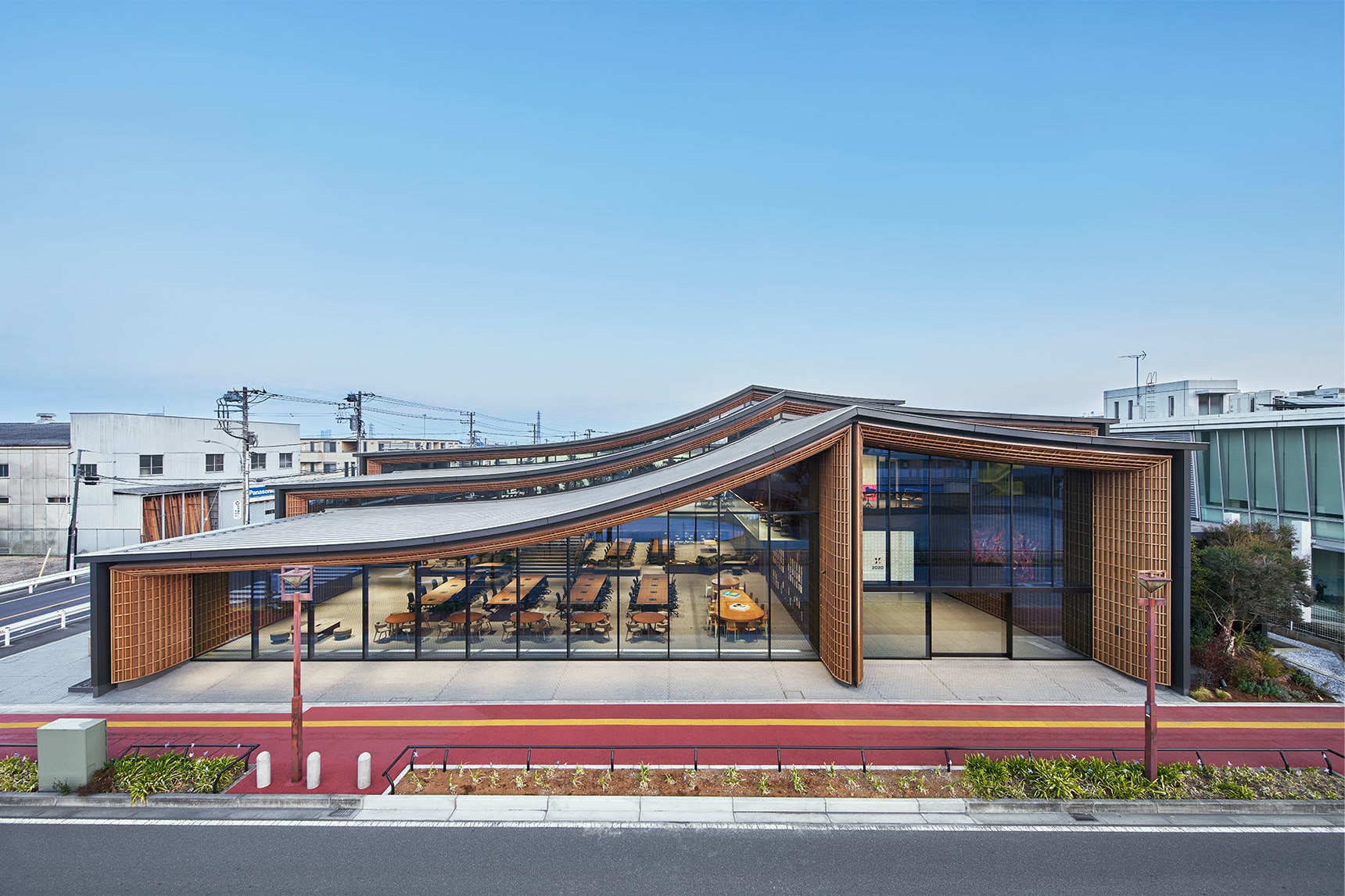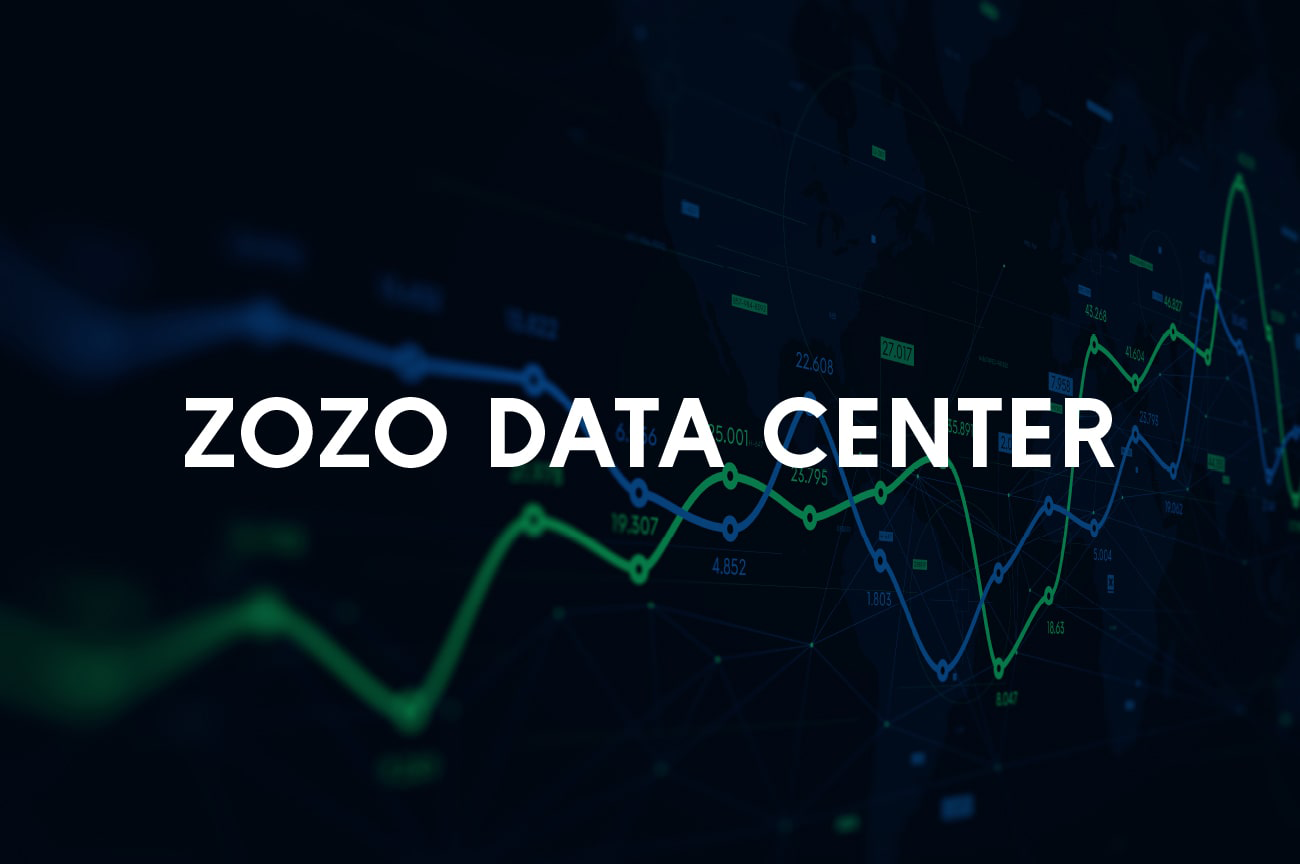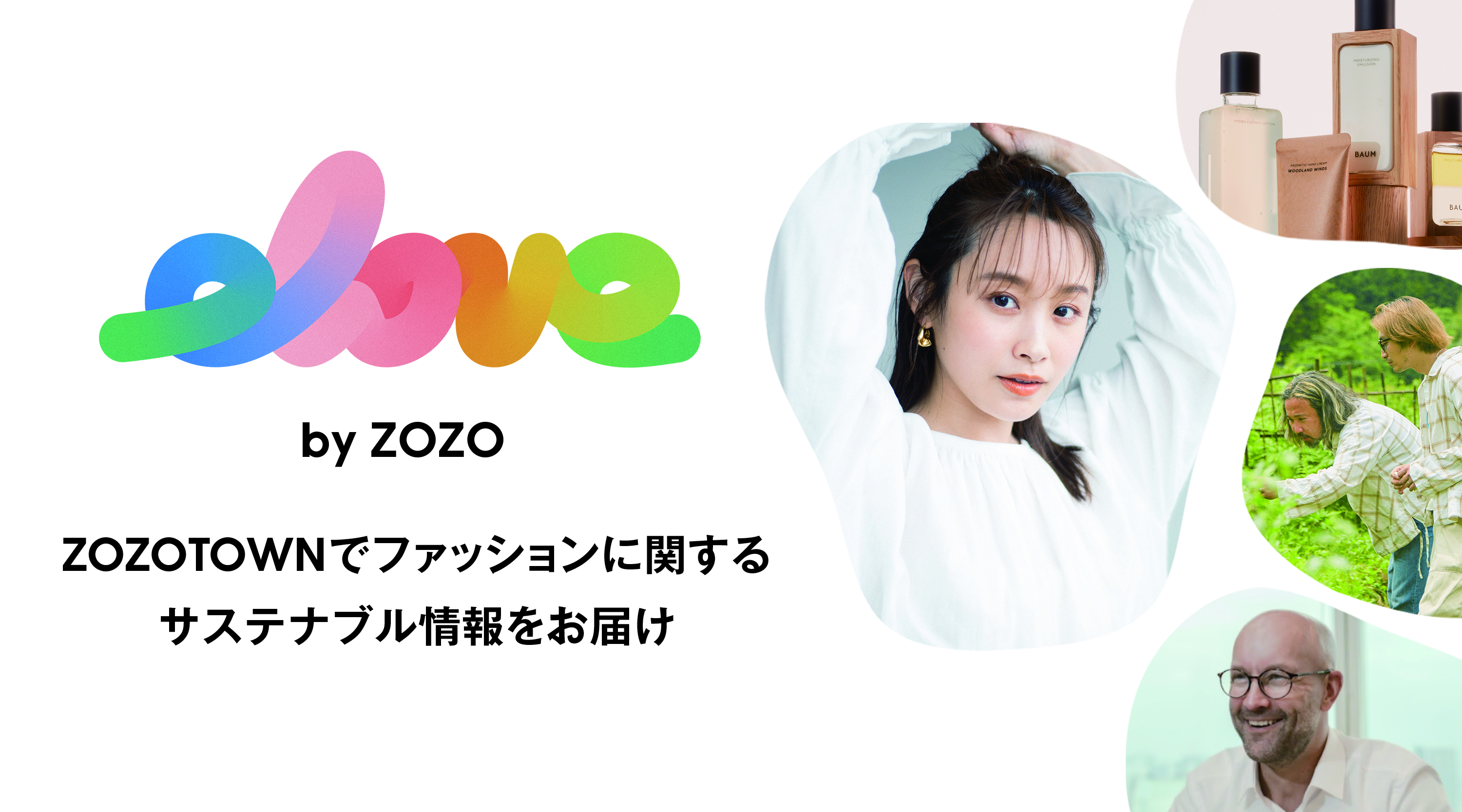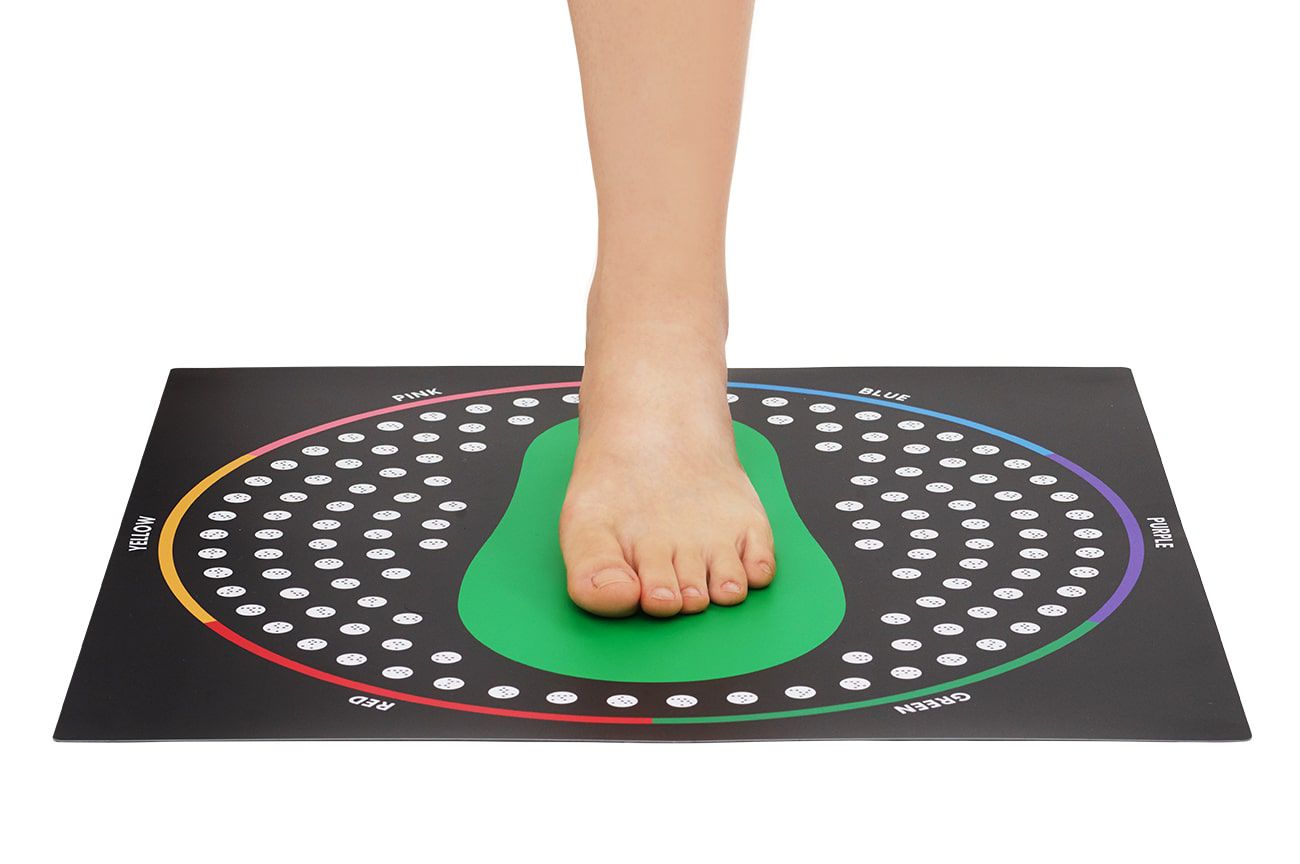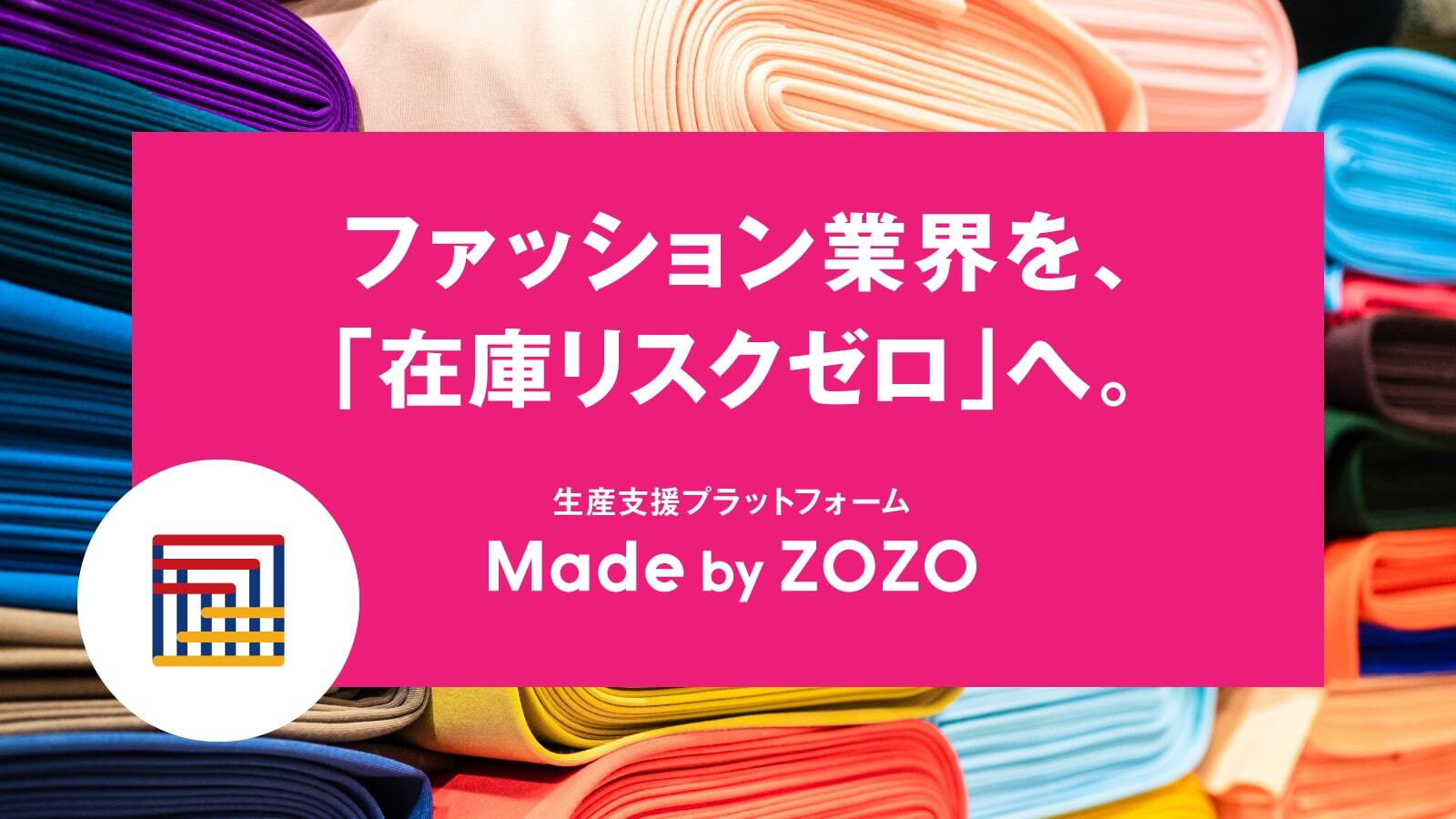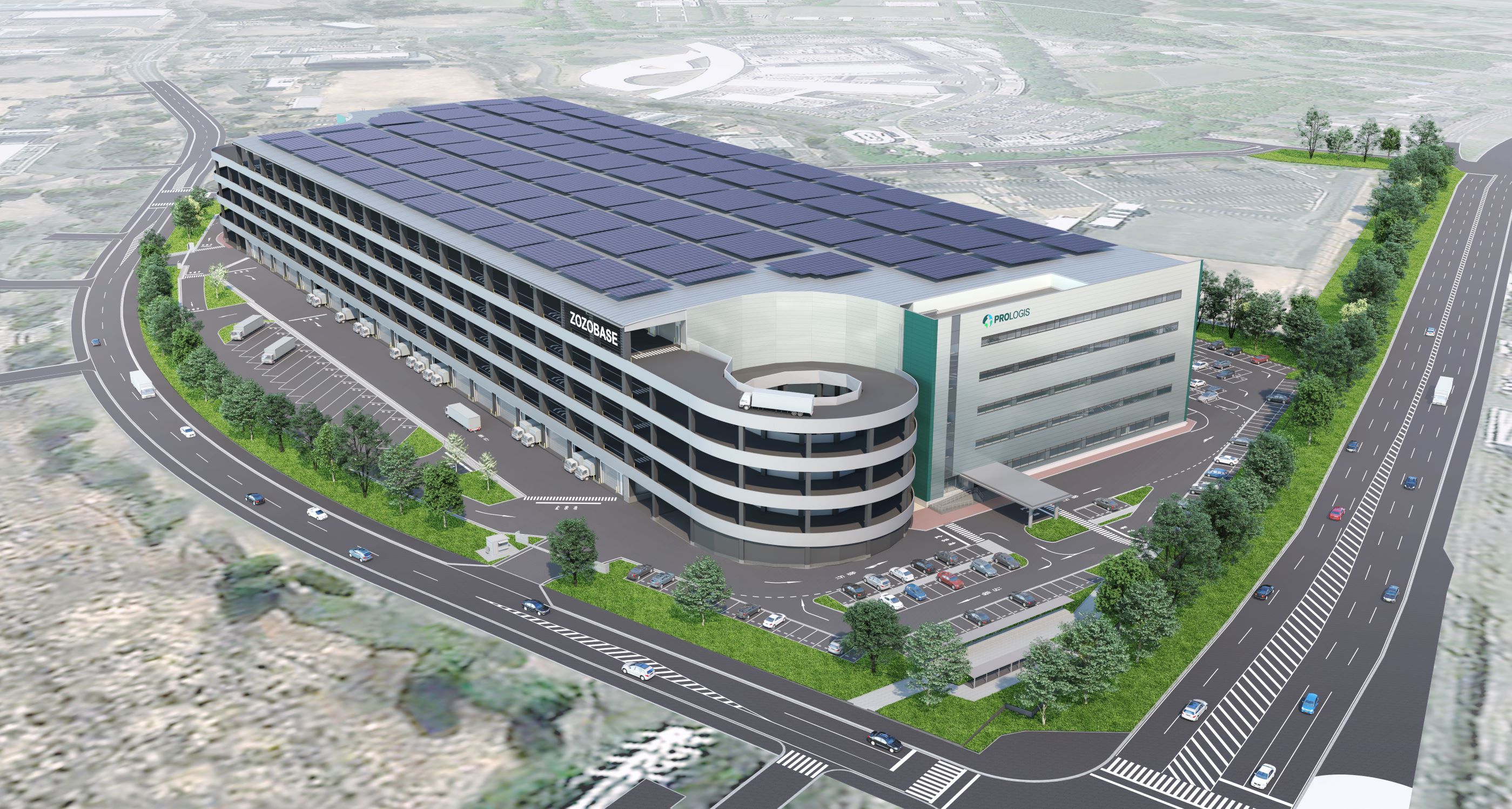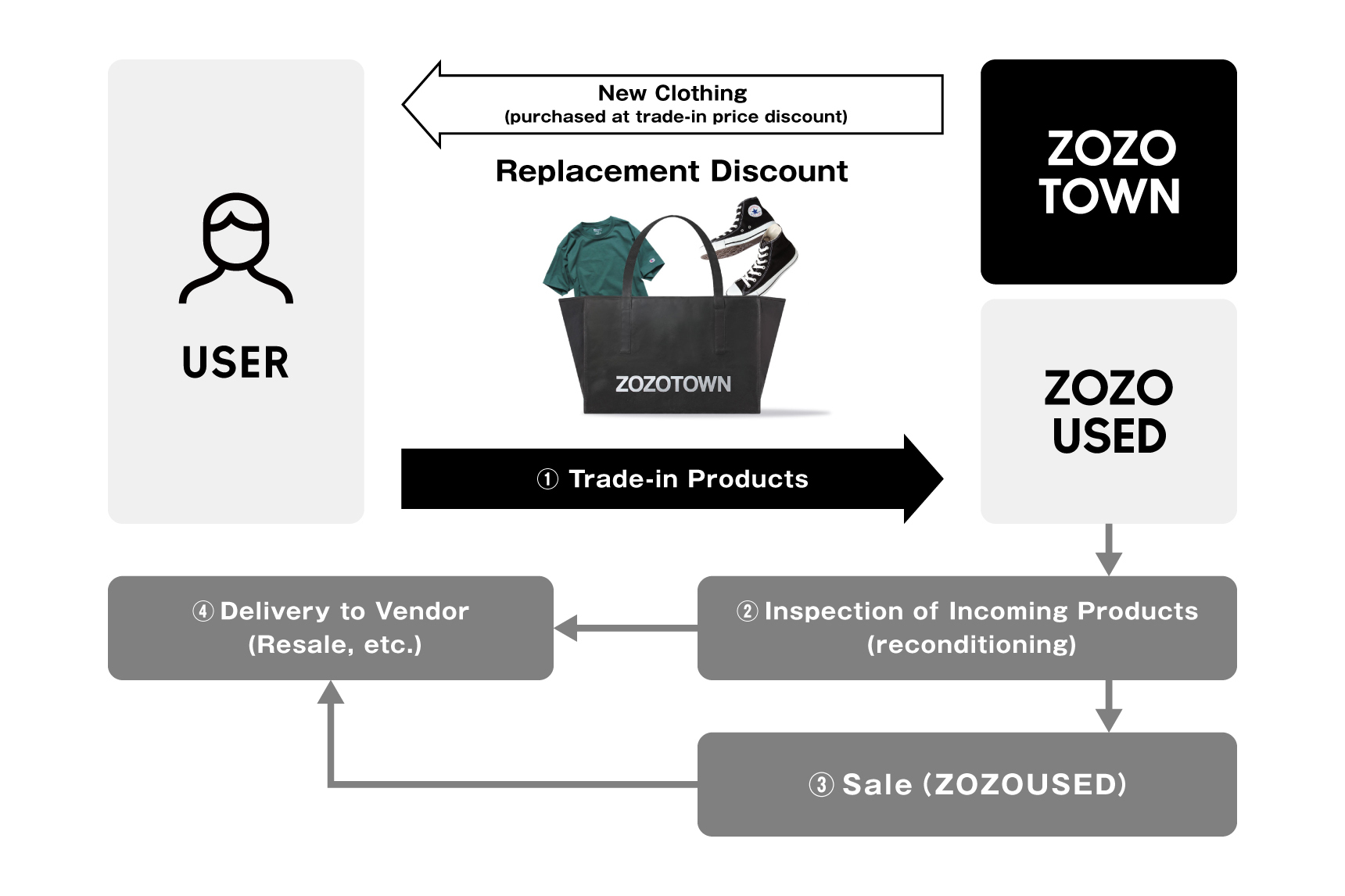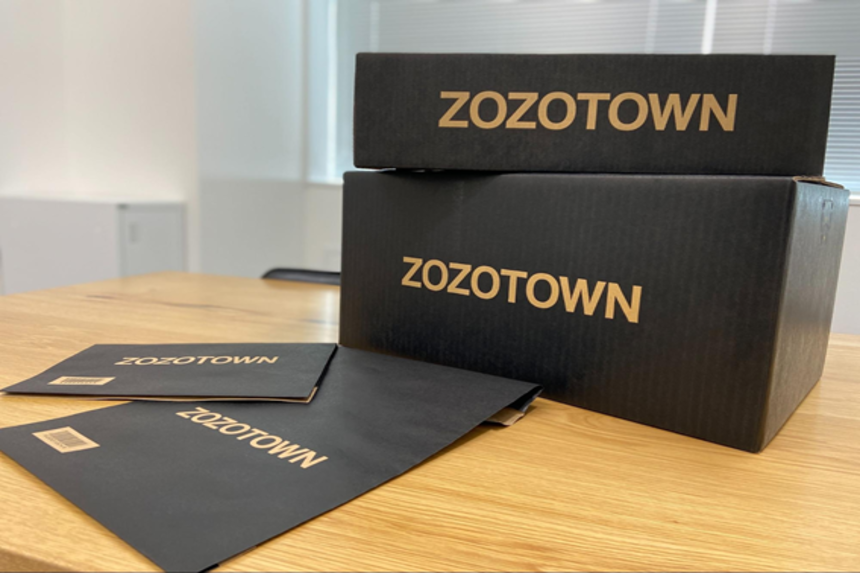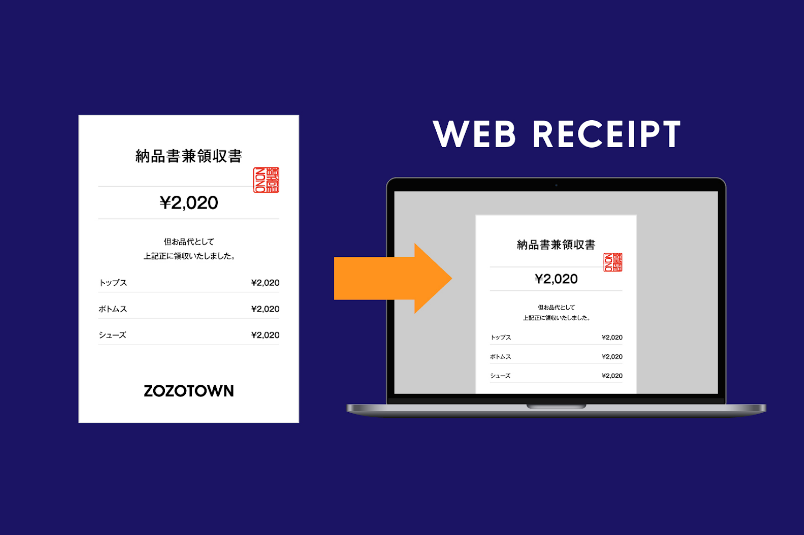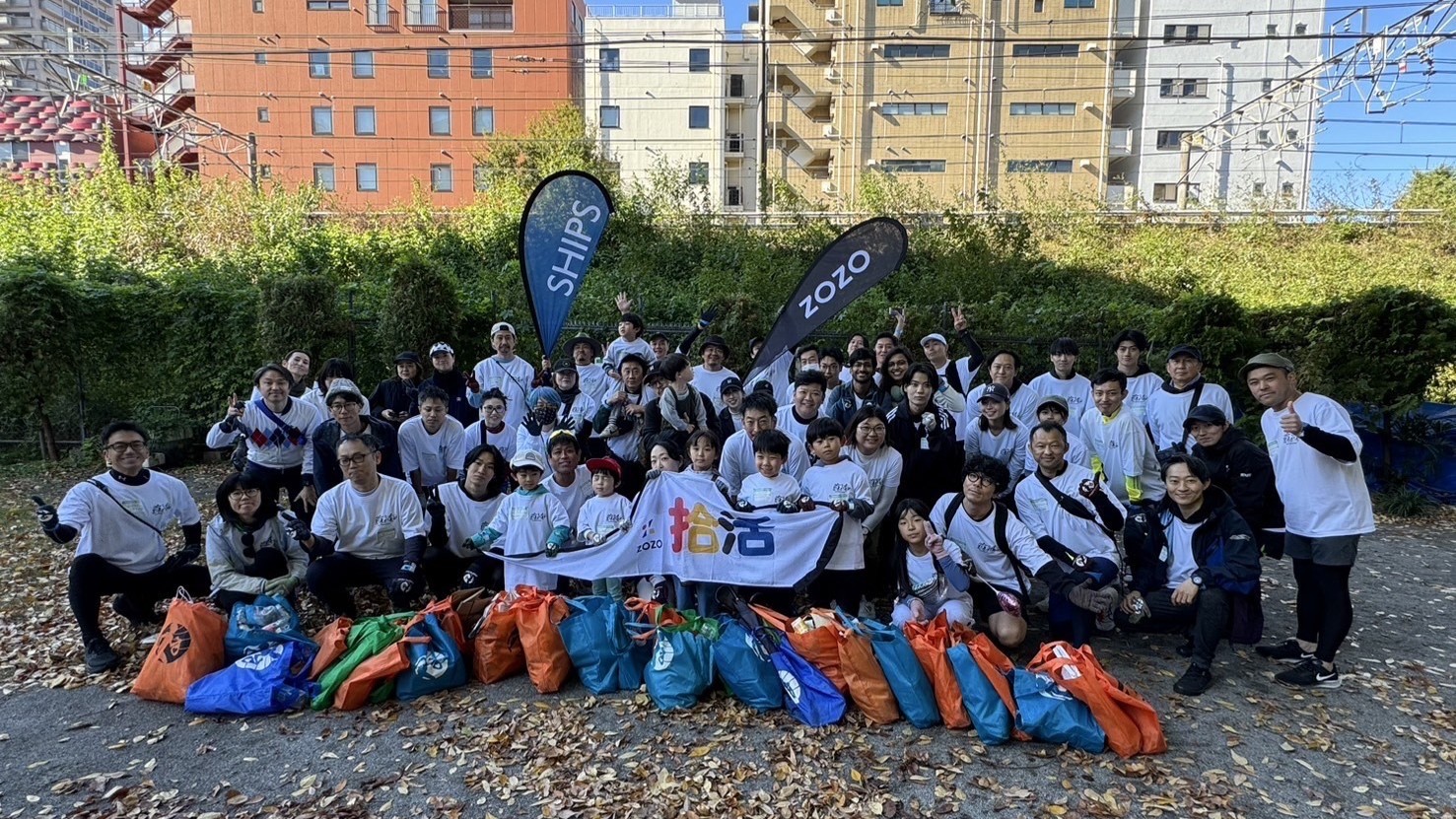Environment
Environmental Management
ZOZO Group has achieved ISO 14001 certification at all of our production sites and has built an Environmental Management System based on ISO 14001 standards. In addition to this, we have established Key Performance Indicators (KPIs) for environmental issues that we consider to be particularly important. We also conduct employee training programs to improve their level of environmental awareness.
Acquired ISO 14001 Certification, ISO 45001 Certification, and QMS Certification (ISO 9001 Certification)
We have developed a production support service Made by ZOZO that produces an appropriate amount of products in accordance with demand that only produces goods after receiving customer orders and provides it to our business partner brands. In addition, our Chinese affiliate factory conducts "Made by ZOZO" production, has acquired ISO 14001 Certification, ISO 45001 Certification, and QMS Certification (ISO 9001 Certification).
| Group Company Information | Location | Year and month of certification |
| NANTONG ZHUOTENG INFORMATION TECHNOLOGY CO.,LTD | China Jiangsu Province | March 2023 |
Basic Environmental Policy
ZOZO Group endorses the Paris Agreement and aims to mitigate the impact of climate change by proactively disclosing relevant information and achieving its greenhouse gas emissions reduction targets. Additionally, we are committed to contributing to the realization of a sustainable environment by active engagement in maintaining and preserving the environment through our business operations.
1.Realize a Decarbonized Society
We will make continuous efforts to reduce CO2 by conserving energy, conserving resources, reducing waste, reusing, and recycling.
2.Conservation of Natural Capital
We will encourage employee participation in environmental conservation activities, promote green procurement, and take environmental measures.
3.Compliance with Laws and Ordinances
We will comply with all laws, ordinances, international rules and practices related to the environment in Japan and overseas.
4.Cooperate with our Stakeholders
We aim to realize a sustainable environment by working with a diverse range of stakeholders to resolve environmental issues.
5.Enhance Education and Training
We will disseminate this policy and environmental issues to all employees and provide education and training.
6.Disclosure of Environmental Information
We will disclose environmental policies and information and promote transparency.
*Basic Environmental Policy approved by the Board of Directors on October 18, 2021
*Products and services and Distribution and logistics are covered
Climate Change
Net Zero
In addition to the "2030 Carbon Neutral Declaration"(*1), which aims to reduce greenhouse gas emissions (Scope 1&2) from our business activities to virtually zero by FY2030, we are committed to realizing a "Net Zero" (*2), which aims to reduce supply chain emissions, including those emitted by business partners (Scope 3), to virtually zero by 2050.
Scope 1: Direct emissions of greenhouse gas by businesses themselves (fuel combustion, industrial processes)
Scope 2: Indirect emissions associated with the use of electricity, heat, and steam supplied by other companies
Scope 3: Indirect emissions other than Scope 1 and Scope 2 (emissions of other companies associated with the activities of the business operator)
*1 Announced the "2030 Carbon Neutral Declaration" in February 2022
*2 Announced "Net Zero" in January 2023ZOZO, Inc. Announces “2030 Carbon Neutrality Declaration,” Reducing GHG Emissions to Net-Zero by FY2030
TCFD
Endorsement of TCFD
ZOZO Group announced the agreement to "Task Force on Climate-related Financial Disclosures (TCFD)"※ in February 2022. We will continue to disclose climate-related risks and opportunities - "Governance", "Strategy", "Risk Management" and "Indices & Targets" based on TCFD’s recommendations.
- "Task Force on Climate-related Financial Disclosures (TCFD)" is a task force established by The Financial Stability Board, an international body consisting of several central banks, ministries of finance and more. TCFD declared to support companies disclosing climate-related risks and opportunities in June 2017.
Governance
We consider that the drafting and implementation of strategies is effective by dealing with climate change issues at our Board of Directors. Accordingly, the Board of Directors deliberate and resolutes on important environmental matters, including climate change. SDGs Promotion Committee, established as an executive management organization, is chaired by the president and CEO, and acts as a chief executive officer of environmental management responsible to oversee discussions regarding climate-related risk and opportunities, policies and goals, progress of initiatives, and to report to the Board of Directors important matters discussed at the SDGs Promotion Committee.
Our Corporate Governance Structure
Strategy
Scenarios for future climate change were analyzed using FASHION INDUSTRY CHARTER FOR CLIMATE ACTION and A Roadmap to Net-zero Emissions for the Apparel Sector those are based on the Intergovernmental Panel on Climate Change (IPCC) to identify risks and opportunities related to climate change.
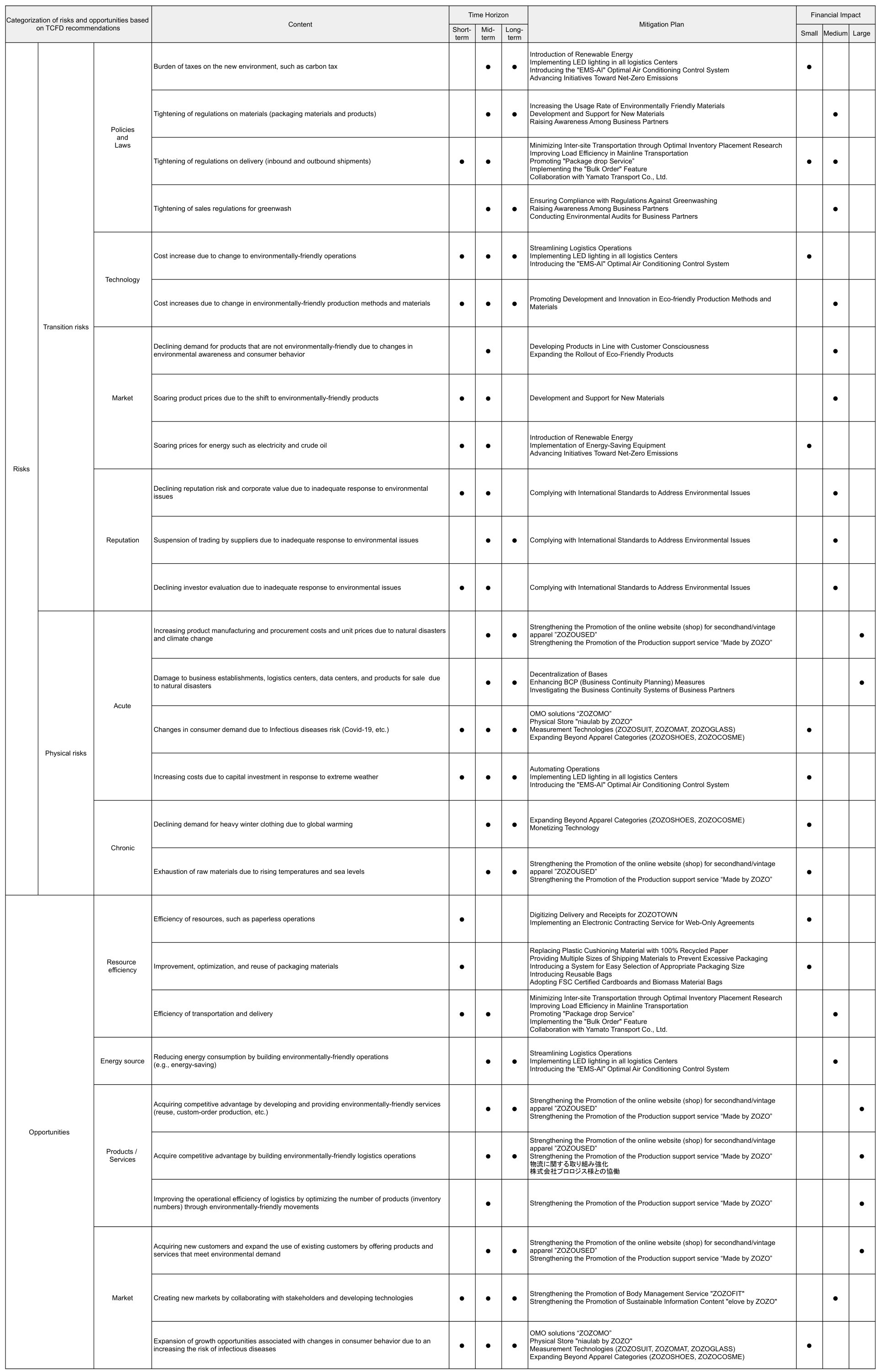
Risk Management
With regard to climate-related risks, the Sustainability Promotion Section in Communication Design Division, which is in charge of sustainability exclusively, identifies climate-related risks and opportunities that affect business, and then discusses them at SDGs Promotion Committee, which is chaired by the Representative Director, President & CEO, and reports to the Board of Directors. In addition, the Risk Management Committee identifies important risks across the entire ZOZO group and implements risk management.
Metrics and Targets
In addition to the "2030 Carbon Neutral Declaration"(*1), which aims to reduce greenhouse gas emissions (Scope 1&2) from our business activities to virtually zero by FY2030, we are working to realize a "Net Zero" (*2), which aims to reduce supply chain emissions, including those emitted by business partners (Scope 3), to virtually zero by 2050.
*Scope 1: Direct emissions of greenhouse gas by businesses themselves (fuel combustion, industrial processes)
*Scope 2: Indirect emissions associated with the use of electricity, heat, and steam supplied by other companies
*Scope 3: Indirect emissions other than Scope 1 and Scope 2 (emissions of other companies associated with the activities of the business operator)
*1 Announced the "2030 Carbon Neutral Declaration" in February 2022
*2 Announced "Net Zero" in January 2023ZOZO, Inc. Announces “2030 Carbon Neutrality Declaration,” Reducing GHG Emissions to Net-Zero by FY2030
Emissions of Greenhouse Gas (CO2) Reduction Targets and Performance
| Scope | Base year emissions | Actual emissions | Actual emissions | Target annual emissions | |||
|---|---|---|---|---|---|---|---|
| Fiscal 2020 | Fiscal 2023 | Fiscal 2024 | Fiscal 2025 | Fiscal 2030 | Fiscal 2050 | ||
| Scope 1 | 5 |
34 (△580%) |
34 (△580%) |
1 (▲80%) |
0 (▲100%) |
0 (▲100%) |
|
|
Scope 2 (Market-based) |
8,032 |
237 (▲97%) |
716 (▲91%) |
1,607 (▲80%) |
0 (▲100%) |
0 (▲100%) |
|
|
Scope 2 (Location-based) |
8,209 |
12,252 (△50%) |
13,576 (△65%) |
1,642 (▲80%) |
0 (▲100%) |
0 (▲100%) |
|
| Scope 3 | 411,919 |
224,593 (▲46%) |
204,580 (▲50%) |
ー |
238,913 (▲42%) |
0 (▲100%) |
|
SBTi
In March 2023, we submitted a commitment letter to "SBT Initiative (SBTi)," an organization that certifies "Science Based Targets(SBT)" that are scientifically consistent greenhouse gas emissions reduction targets set by the Paris Agreement. In addition, we have set a target to achieve the Paris Agreement's "1.5℃ target" and have applied for SBT certification.
*SBT: Greenhouse gas emission reduction targets set by companies to be 5 to 15 years ahead, consistent with the level required by the Paris Agreement
*SBTi: Initiatives jointly managed by four organizations: the World Wide Fund for Nature (WWF), CDP, World Resources Institute (WRI), and the United Nations Global Compact
Third-Party Verification
In order to ensure high reliability of its reported environmental data, along with its group company SoftBank Corp. and LY Corporation underwent third-party verifications by the Japan Quality Assurance Organization, for objective evaluation of their environmental data.
The Japan Quality Assurance Organization conducted verification in accordance with "ISO 14064-3" for GHG emissions and with "ISAE3000" for Energy consumption, Renewable energy consumption and Renewable energy usage rate, Water consumption and Water Intensity, and Amount of industrial waste disposal. The verification was conducted to a limited level of assurance and quantitative materiality was set at 5 percent each of the total emissions, consumption and amount of disposal in the Reports. For more information, please refer to the following link.
Based on the procedures described above, nothing has come to our attention that caused us to believe that the statement of the information regarding the LY Corporation Group's FY2023 GHG emissions from Scope 1, 2 and 3, Energy consumption, Renewable energy consumption and Renewable energy usage rate, Water consumption and Water Intensity, and Amount of industrial waste disposal in the Reports, is not materially correct, or has not been prepared in accordance with the Rules.
Third-Party Verification Report
Initiatives with Industry Associations
We actively promote initiatives alongside industry associations to address environmental and social issues, engaging with our supply chain and all stakeholders in the process. Furthermore, we consistently reassess the alignment between our management strategy, business activities, and the philosophies of these industry associations. Should a significant misalignment be identified, we explore opportunities for improvement, consider withdrawing, and seek membership in associations more in line with our policies.
JSFA
On April 1, 2022, we became a regular member of the JAPAN SUSTAINABLE FASHION ALLIANCE (JSFA), which aims to promote the transition to a sustainable fashion industry. JSFA is an alliance established in August 2021 to collectively address challenges that are difficult for individual companies to solve independently. As of April 2024, a total of 65 fashion and textile companies were members, with the Ministry of Economy, Trade and Industry, the Ministry of the Environment, and the Consumer Affairs Agency as public partners.
Commitment
・In endorsement of the Paris Agreement,we promote the transition to a carbon-free business. (Endeavor to overcome contrary businesses)
・We endeavor to participate in the Net Zero Declaration and RE100, EP100, EV100 by 2050.
・We work to reach suppliers and customers and make the value chain more transparent.
・We promote the proper volume production, appropriate volume purchase, and recycling.
・As a member of the alliance, we endorse and cooperate with policy involvement and collaboration in sustainable fashion.
2050 year target
・"2050 Carbon Neutral"
・"Zero Fashion Loss through Proper Volume Production, Appropriate Volume Purchase, and Recycling"
Approach to Human Rights
The Japan Sustainable Fashion Alliance (JSFA) and its member companies endorse the UN Guiding Principles on Business and Human Rights, actively advancing initiatives that respect human rights in accordance with these principles.
Initiatives at JSFA
At JSFA, our company, as a member, has assisted in creating the “JSFA Scope 3 Greenhouse Gas Emissions Case Studies.” Supported by the Ministry of the Environment and in partnership with the Japan Apparel-Fashion Industry Council (JAFIC), we have also helped develop the “Sector-specific Guide to Calculating Greenhouse Gas Emissions through Supply Chains for the Fashion Industry.” Going forward, we will continue to engage actively in discussions to address shared industry challenges and to promote initiatives towards zero fashion waste, supporting the fashion industry's goal of achieving carbon neutrality by 2050.
JAPAN SUSTAINABLE FASHION ALLIANCE (JSFA)
Japan Climate Initiative(JCI)
Since March 2024, we have been a participant in the Japan Climate Initiative, endorsing its declaration to "Join the forefront of the global movement towards decarbonization from Japan." The initiative serves as a network to enhance the sharing of information and dialogue among businesses, municipalities, NGOs, and other entities actively engaged in combating climate change.
Japan Climate Initiative
Climate Change Initiatives
We are implementing measures to address climate change through the introduction of renewable energy at our head office and several logistics centers and through services utilizing technologies such as ZOZOMAT, a mat for foot 3D measurement.
Introduction of Renewable Energy to Our Sites
We are committed to achieving 100% renewable energy use for our facilities by 2030, as part of our “2030 Carbon Neutral Declaration”. As of March 2025, more than 90% of the electricity consumed at our facilities is sourced from renewable energy. All renewable electricity procured comes from non-fossil certificates. We have adopted ENECT RE100 Plan from minnadenryoku Co., Ltd., which provides 100% renewable energy for electricity consumption. In January 2022, ZOZOBASE Narashino 1 and ZOZOBASE Tsukuba 1, our logistics centers, and ZOZOBASE Tsukuba 2 from June 2022 and ZOZOBASE Narashino 2 from September 2022, respectively, introduced 100% of biomass and solar-derived renewable energy with tracking and FIT-non-fossil certificates. CO2 emissions reductions in FY2023 due to the introduction of renewable energy will amount to 12,686 tons.
Introduction of 100% Renewable Power to ZOZO Head Office in Nishi-Chiba
Using Renewable Energy in All Data Centers
Our data centers that store our servers, etc. use 100% renewable energy power. We are also promoting energy-saving initiatives using cloud data centers.
Sustainable Content "elove by ZOZO"
In September 2022, we launched "elove by ZOZO," a permanent content that presents sustainable information on the Fashion EC "ZOZOTOWN" used by more than 11 million people per year. Aiming to "Highlight sustainable fashion choices to improve usersʼ experience," we present their efforts to sustainability of fashion brands and sustainable products. We also present TIPS related to fashion, environmental and social issues, and other information that is useful when sustainable shopping.
Permanent Content "elove by ZOZO"
Measurement Technology
In order to resolve concerns about the size of EC purchases, we provide measurement tools such as ZOZOSUIT, 3D measurement bodysuit, ZOZOMAT, 3D foot measuring tool, and ZOZOGLASS, a skin tone capturing device. As a result, we have been able to reduce the amount of CO2 generated by returning and delivering products, thereby reducing the environmental impact. We also confirmed that ZOZOMAT users have a 36.9 percentage (※) lower return rate than non-users. In addition, we have begun offering ZOZOFIT, a body management service that supports workout progress in the United States using ZOZOSUIT, which enables the generation of 3D models for the body. Measuring technologies not only in fashion but also in healthcare and other fields.
*Compare return rates of ZOZOMAT compatible shoes and non-compatible shoes (Period: February 27, 2020 to October 12, 2020)Reduce Environmental Impact by Lowering the Return Rate of Shoes Compatible with ZOZOMAT
Production Support Service Made by ZOZO For Sales on Order
As an initiative to solve the issues of the fashion industry-mass-production and mass-disposal, we have developed production support service Made by ZOZO and provide it to our business partner brands. Since Made by ZOZO manufactures products after receiving orders from customers, it is possible to produce an appropriate amount of products in accordance with demand. As a result, there is no impact on production materials due to over-production of products or waste due to unsold products. In addition, since Made by ZOZO can be delivered from one point to production and from order to delivery within 10 days at the earliest, we are able to deliver products to customers without stress compared to ordinary custom-made production.
Furthermore, we incorporate part of the PET bottle waste collected through activities such as plogging into new fabric materials using a material recycling system.
(*) Since 2023, some of the products we manufacture and sell use recycled fibers (for example, UpDRIFTⓇ denim fabric contains 26% recycled fibers as of June 2025)"
Logistics
Logistics Centers
・Installed LED Lightings at All the Logistic Centers
In logistics centers ZOZOBASE, 100% of the electricity used at all bases is renewable energy, and LED lighting is used for all lighting equipment to conserve energy and reduce CO2 emissions.
Installed LED Lightings at All the Logistic Centers, "ZOZOBASE"
・Introduced "EMS-AI" air conditioning optimum control system
In logistics centers ZOZOBASE, we are working to save energy and reduce CO2 emissions by introducing EMS-AI, which automatically optimizes temperature control in the warehouse.
Introduction of the Air Conditioning Optimization Control System "EMS-AI" at Logistics Center "ZOZOBASE NARASHINO 1"
・Minimize transportation between logistics centers
In logistics centers ZOZOBASE, ZOZO RESEARCH, our R&D organization, are conducting inventory allocation research to minimize inter-site transportation with the aim of achieving sustainable logistics, and reduce CO2 emissions with inter-site transportation.
ZOZO Research Institute receives the Operations Research Society's 42nd "Case Study Award" for its research on inventory placement that minimizes transportation between locations.
・In the logistics centers ZOZOBASE we use pallets made of 100% recycled materials when transporting cargo. In addition, as an initiative to reduce the use of plastic hangers associated with the storage of outerwear and other products, we recommend flat storage to the extent that quality is not compromised, and request our business partners to deliver products that do not use plastic hangers as much as possible, and we are working to reduce the amount of waste.
Introduced Pallets with 100% Recycled Materials
・Adoption of sandwich panels with high thermal insulation properties for the exterior walls of logistics centers
Transportation and delivery
・Improvement of loading efficiency in trunk line transportation
When transporting products from logistics centers ZOZOBASE to distant locations (such as the Hokkaido・Kyushu region), we reduce the amount of CO2 used in transporting products by improving the load-carrying efficiency of trunk transportation by packing them in different regions after trunk transportation, instead of packing them at our each transportation sites.
Utilize YAMATO TRANSPORT's Relation Center to Streamline ZOZOTOWN Product Delivery in the Hokkaido・Kyushu Region
・Introduced EAZY, Supported by YAMATO TRANSPORT into our services
We have introduced EAZY, a service offered by YAMATO TRANSPORT Co., Ltd. that allows customers to choose the way they receive it, such as in front of the entrance, for the first time in Japan, and we recommend it on the order completion screen of our service. As a result, the rate of customer absenteeism at the time of delivery has decreased, and we are working to reduce CO2 emissions with redelivery.
Introduced EAZY, Supported by YAMATO TRANSPORT into our services, and launched a new delivery method to reduce the risk of personal information leaks through our package drop service.
・Introduction of "Order Consolidation" function
We have introduced an "Order Combination" feature that combines multiple orders into a single order for delivery. When multiple orders have not yet been shipped, orders that can be combined will be automatically combined and shipped to the specified destination. This reduces the amount of packaging materials used for product delivery and the number of deliveries, thereby reducing CO2 emissions associated with delivery.
Efficiency Improvement in Product Delivery through the Expansion of Order Consolidation
・Introduction of "Slow Delivery"
"Slow Delivery" is a new delivery option that delivers orders between 7 and 10 days after customers place their orders, and the lead time from order to delivery is up to 6 days longer than normal delivery. As an address the "2024 Problem" in logistics caused by the implementation of the Work Style Reform Laws, we conducted a trial introduction of it in April 2024, and as we confirmed the effect of reducing the number of deliveries by promoting "Order Consolidation", we introduced it on a full scale in August 2024, expecting further effects such as a reduction in CO2 emissions.
Packing materials
・Use of environmentally friendly materials
In the logistics centers ZOZOBASE, we use FSC certified cardboards and bags made from biomass materials for packaging materials used in the delivery of products to customers. We also use recycled paper to protect our products, and we strive to be environmentally friendly.
Changed Packaging for Delivery to Environmentally Conscious Materials
Waste Reduction
In order to realize a sustainable society, we are working to reduce waste by recycling clothing through secondary distribution and reducing paper consumption.
ZOZOUSED
In the reuse business “ZOZOUSED", which we operate on ZOZOTOWN, we are committed to reduce waste by purchasing and selling fashion-related products that are no longer in use. Furthermore, we have implemented reusable bags for collecting these items, which can be repeatedly used after being cleaned.
The Journey of ZOZOUSED and Its Commitment to Circular Fashion
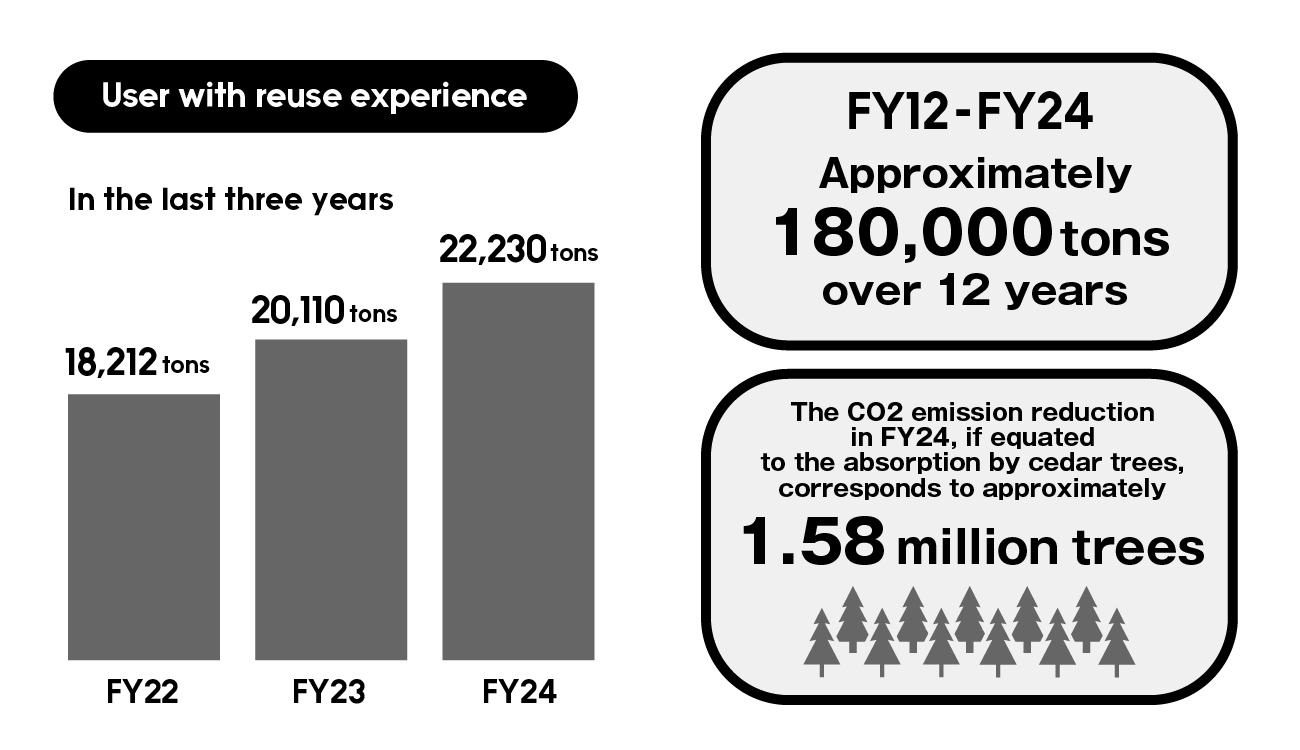
At “ZOZOUSED”, by redistributing items collected from customers, we have been able to prevent CO2 emissions that would occur from the production to disposal and incineration of newly manufactured items. Assuming this, since the start of the service, we have cumulatively reduced CO2 emissions by about 180,000 tons (※1). Furthermore, the amount of CO2 emissions reduced in the fiscal year 2024, when converted to the amount absorbed by Japanese cedar trees, is equivalent to approximately 1.58 million trees (※2).
*From November 2012 to March 2025. This assumes the prevention of CO2 emissions that would occur from the production process to the disposal and incineration of newly produced items. The number of collected items was converted to weight (source: Ministry of the Environment, “Sustainable Fashion – Fashion for the Future”), and the CO2 emissions per kilogram of item were multiplied to calculate this (source: Ministry of the Environment, “Method of Calculation for 3R Unit Value”).
*Assuming that one Japanese cedar tree absorbs about 14 kg of CO2 emissions (source: Kanto Regional Forest Office, Carbon Dioxide Absorption Capacity of Forests).
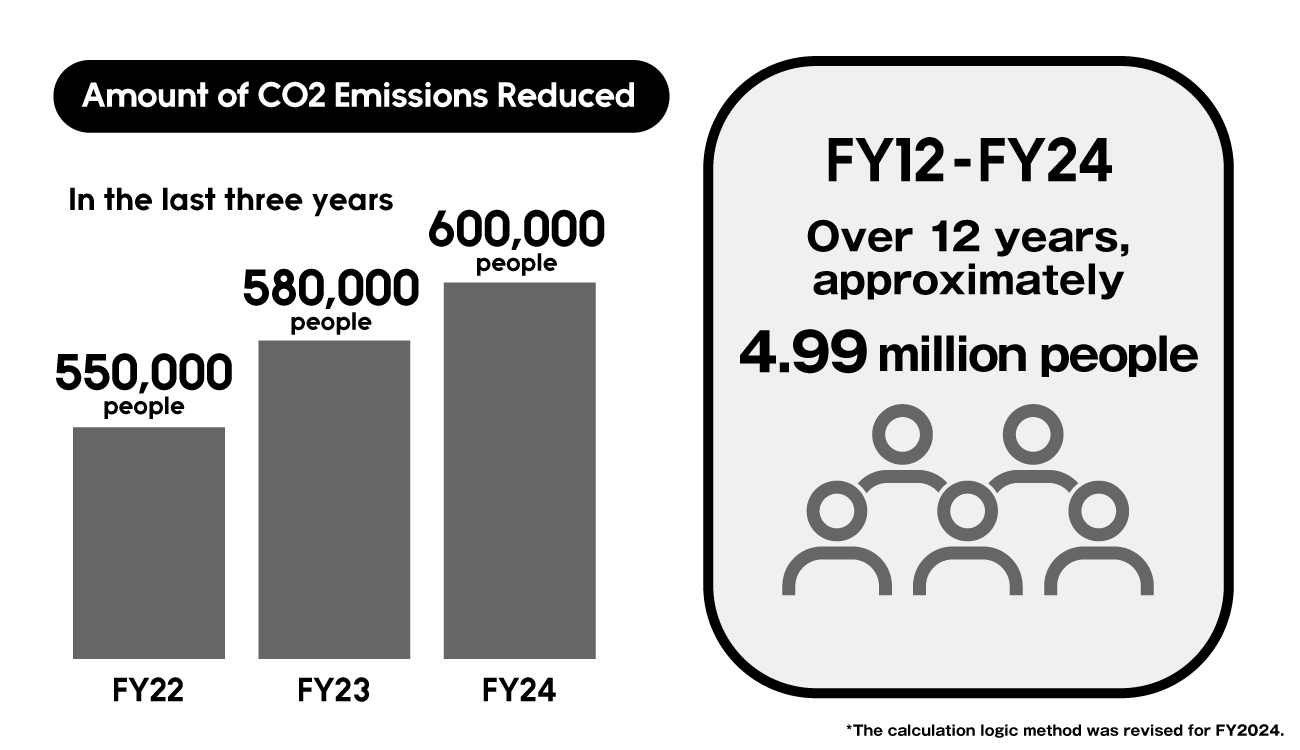
Moreover, the number of ZOZOUSED users (people with reuse experience) has reached approximately 4.99 million in total (※) since the service started. We continue to aim to establish a circular fashion by increasing the number of users with reuse experience, thereby expanding the cycle of circulation.
*From November 2012 to March 2025. The definition of a user with reuse experience includes purchasers of ZOZOUSED service products, users of the Replacement-discount service, and users of the regular purchasing service."
Packaging Materials
・Select the right size material for your products
Materials for packaging products ordered by customers are provided in multiple sizes and are packaged according to the size of the product. We are also working to reduce the amount of materials discarded for delivery, such as by introducing a system that allows the selection of appropriate-size materials for the size of products.
Changed Packaging for Delivery to Environmentally Conscious Materials
Paperless operations
・ZOZOTOWN Electronic Invoices and Receipts
All of the invoices and receipts delivered to the customers are digitized when ordered by ZOZOTOWN. When converted into the number of shipments in fiscal 2024, we reduced the number of invoices and receipts (paper) by approximately 61 million per year. As a result, the amount of carbon dioxide emissions from incineration is expected to be reduced by approximately 354 tons.
ZOZOTOWN Electronic Invoices and Receipts
・Improve Operational Efficiency and Reduce Paper Consumption by Introducing Electronic Contracts
In addition, we have introduced an electronic contract service called CloudSign, and are working to reduce waste of paper as a Web completion type, such as contracts.
Improve Operational Efficiency and Reduce Paper Consumption by Introducing Electronic Contracts
Natural Capital
Initiatives to Conserve Water Resources
Recognizing that water resources are an important item for the conservation of natural capital, which also relates to climate change issues and biodiversity conservation, the Group will strive to reduce water consumption in its business activities, conserve water resources, and manage and address water risks.
The main uses of water at We can be broadly divided into two categories: cooling water at the data center and other water for daily use at the business offices. Of these, for our business offices, we consume only the amount necessary for our workplace life.
*We believe that as a business model, the impact on financial performance is minimal
Analyzing and Responding to Water Risks and Identifying Priority Locations
We have identified water risks in 15 areas of consolidated group company locations that disclose financial and non-financial reporting.
*As of May 2025
Overall water risk
| Country | No. of Locations |
Percentage Out of All Locations |
| Japan | 12 | 80.0% |
|
United States |
1 | 6.7% |
| China | 1 | 6.7% |
| New Zealand | 1 | 6.7% |
| Total | 15 | 100% |
The World Resources Institute's (WRI) Water Risk Atlas tool was used to periodically check the Group's overall water risk, water stress risk and future risk, among others.
Related Links
World Resources Institute's (WRI) Water Risk Atlas tool (external website)
Out of the 15 sites surveyed, 12 sites, which is approximately 80%, are located in Japan, and domestic sales account for more than 99% of the total sales.We recognize that most of the domestic sites are scored with Low to Medium (10-30%) and the impact on business is not significant; however, several domestic sites are located in low-lying areas, such as coastal areas, and we recognize that there is a risk of torrential rains, flooding, storm surges, etc. due to climate change. Two site in two overseas country was identified as a site with a water stress risk of High (40% risk ratio) or higher.These areas have population concentration and drought/drought risk and are identified as areas of concern. The risk scale is as follows.
|
Degree of Impact on Business at Sites with Water Risk of High (40-80%) or Higher |
Percentage of the Group's FY2023 Sales |
|
2 country/region, 2 site |
0.1% or lower |
Future risks in 2050 were also identified at the same time, and areas with a risk ratio of High (40% risk ratio) or higher were identified.In these areas, there are concerns about submergence/flood risk, drought/drought risk, and water quality risk in the medium to long term, and we will work to conserve water and ensure the continuity of our business.
Data Center Initiatives
The data center used by ZOZO utilizes the World Resources Institute's (WRI) Aqueduct 4.0 tool to better understand water stress concerns. In recent years, the data center has enhanced its ability to accurately measure water use baselines and monitor annual progress on a facility-by-facility basis. Water Use Efficiency (WUE) has been monitored, and the goals of water use reduction have been set to improve overall facility.
To reduce water consumption, we are actively working toward becoming water positive — returning more water to the natural environment than we use — through initiatives such as on-site fuel cells, recycling of domestic wastewater, and rainwater harvesting.
Third-Party Verification
In order to ensure high reliability of its reported environmental data, along with its group company SoftBank Corp. and LY Corporation underwent third-party verifications by the Japan Quality Assurance Organization, for objective evaluation of their environmental data.
Third-Party Verification Report
Biodiversity
In January 2023, ZOZO Group announced the “Net Zero,” which aims to achieve virtually zero CO2 emissions by 2050. Reducing CO2 emissions not only mitigates climate change, but also leads to ecosystem conservation and maintains biodiversity. In addition, we consider biodiversity as one of our materiality and reflect into our corporate activities by curbing deforestation and maintaining, strengthening and conserving biodiversity and ecosystems. For example, we have adopted FSC certified (*1) corrugated containers and environmentally-friendly packaging materials, reduction of paper consumption by digitizing delivery slips and receipts, and changing the cushioning material used for delivering products from plastic materials to 100% recycled paper. We will continue to comply with relevant treaties and laws and regulations, and aim to realize a society that coexists with nature.
* FSC certification is an internationally recognized system for "appropriate forest management," which was created with the aim of sustainable forest use and conservation.Basic Environmental Policy
Changed Packaging for Delivery to Environmentally Conscious Materials
Sponsorship and Participation in Environmental Conservation Events
We have sponsored and participated in the environmental conservation event "Shibuya and Plogging" organized by the "Ocean Taro Association" every year since 2022. In the event, we participate in "plogging," an activity that combines jogging with trash collection, together with brands closely associated with Shibuya district, a central hub of fashion.
At the event held on Saturday, November 23, 2024 (National Holiday), 60 participants, including our employees and fashion industry professionals, took part and collected a total of 52 kilograms of trash.
Plastic bottles collected through these activities are recycled into new fashion materials using a material recycling system. Since 2023, we have been manufacturing and selling products made from recycled fibers through our production support service "Made by ZOZO."
"ZOZO Beach Clean Action" Implemented


